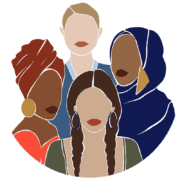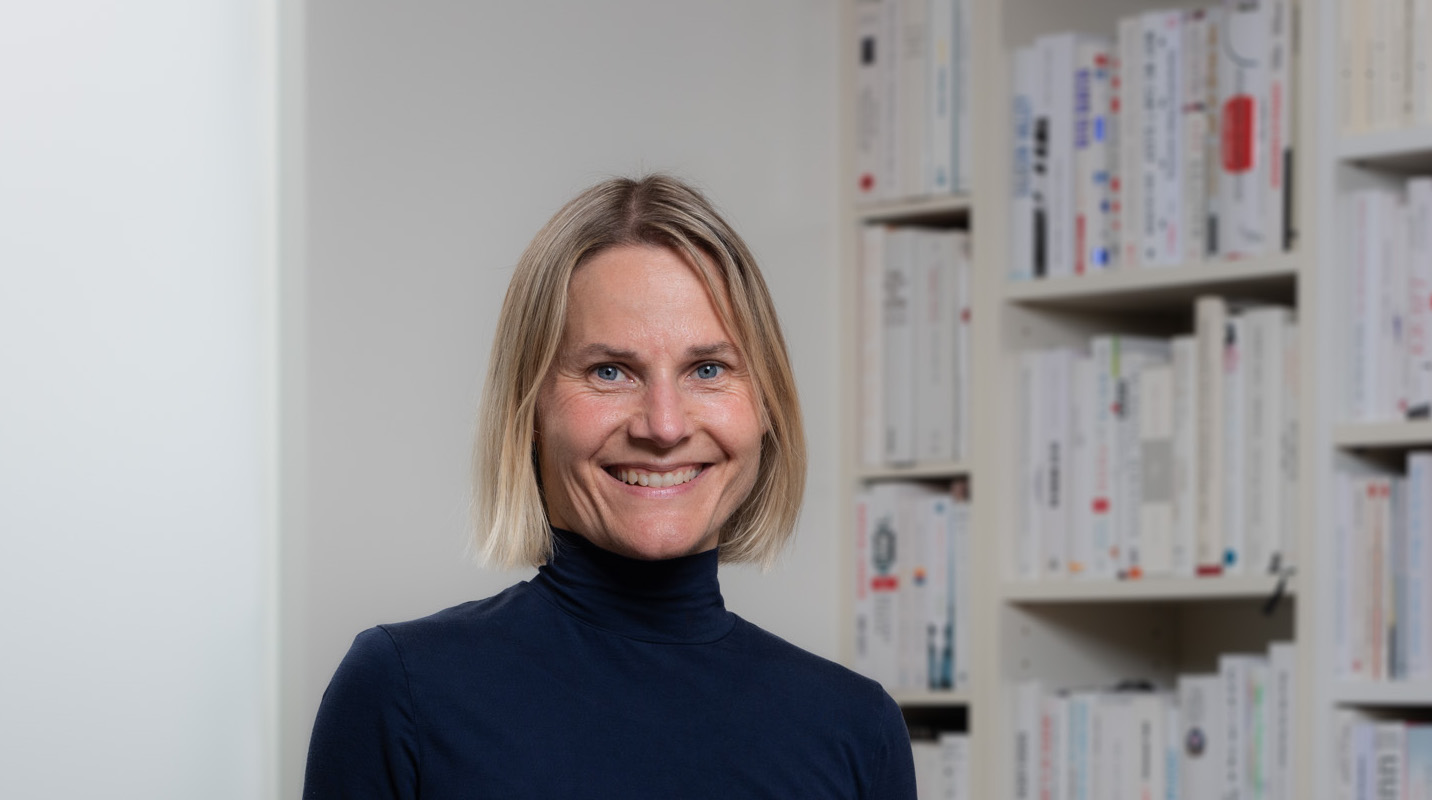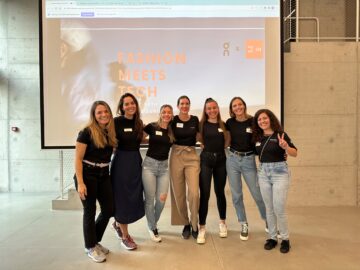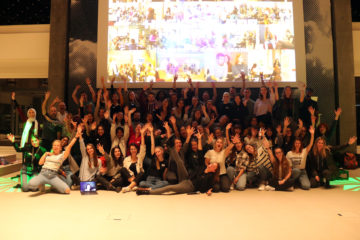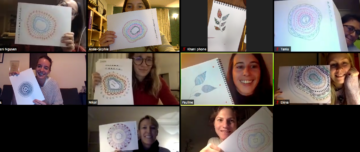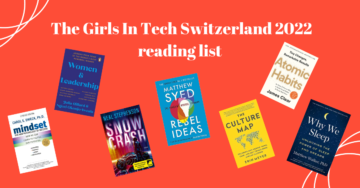Each month we have the honor of interviewing WOMEN WHO INSPIRE US. This month we talked to Sara Kaiser, Program Director at the Luxembourg Tech School. From her inspiring and non-linear path into tech, to how she fights for more diversity and inclusion through her work with children and teenagers, this interview will bring great insights and inspiration to all of us.
Tell us a bit about yourself, your background, and your current position.
I am Sara Kaiser and I currently work as Program Director of the Luxembourg Tech School (LTS) which is an independent educational organization closely embedded in the national school system that aims to bring hands-on technology lessons, events and activities to high school students all over Luxembourg.
My educational background is in economics and tourism, and the list of previous jobs and professional roles is quite long and diverse. I grew up in Switzerland and spent my first years in tourism and banking, at UBS, Swiss, and the Davos Tourism Destination.
I had my first bigger career change at the age of 26 and ended up in the arts, rather by chance, working as Administrative Director of an art museum, the Kirchner Museum Davos, and of the Davos Festival, a classical music festival. Afterwards I worked in the same role for the Zurich Chamber Orchestra, before I moved to Luxembourg where my role was more artistically involved as Artistic Planning Director of the Philharmonie Luxembourg, one of the leading European Concert Halls.
Since 2018, I have been at the Luxembourg Tech School, first as a Freelance Tech Educator, afterwards in my current role as Program Director. Next to my day job, I also still work as a freelance consultant for arts and governmental organizations. I love my current place at the intersection of arts, technology and education and I hope for a future where these areas are not so much treated as separate units any more but more interwoven.
What brought you into the tech industry?
I already had worked in different sectors and enjoyed the arts related period of my career a lot, but at some point I felt like I had seen the majority of things. The classical music business is also not the most innovative place in the world, and I always want to be challenged and grow. That is one aspect why tech has always fascinated me. First, I followed technological developments only in my free time, not professionally. When I had a bit more time, I dived more into the basics of coding and computer science related topics on my own.
Again more by coincidence, I started to work as a freelance tech educator with the Luxembourg Tech School while still being in the learning process. After about one year in this role, I became more involved as Program Director. I am still forced to learn new things every day, and I am surrounded by people who have a much deeper technical knowledge through their education. The environment I am in forces me to learn, grow and keep moving, which I enjoy very much. And which is something that technology demands of all of us at all times anyway.
Looking back at my career path, it might seem like many fast and abrupt changes, but to me it always felt quite natural. The great thing about knowledge is that it never leaves you. You learn certain things in a sector, and you can apply it in other domains. You can connect concepts across fields, and it is fascinating to think about different frames and find similarities.
What is the most exciting thing in your professional life right now?
I enjoy that my days and responsibilities are very multi-faceted. I am ensuring that a whole team of staff, freelance people, teachers and program participants with student jobs can all use their skills and interests in the best way possible. Furthermore, I also coordinate and create content for our courses, work with organizations & government agencies to bring all our activities to life. Our goal is to build the bridge from industry to the students and vice versa.
I reflect a lot about young people in different age groups and try to figure out what they need to be able to flourish, to become avid learners and explorers. To be active creators of technology and not just passive consumers.
At LTS, we are showing young people the many facets of tech and how empowering and playful it can be. So, if I have to pick one most exciting aspect, then it is to see how you can have a positive impact on young people’s lives. This gives me a feeling of purpose.
How do you drive diversity and gender equity at your current job?
We don’t explicitly focus on girls at LTS, the program is open to everybody. But personally it’s one of my biggest hopes and at the same time challenges to attract girls and kids with different backgrounds who might not be naturally surrounded by people who open doors regarding technology to them.
The focus of our programs lies on solving problems with the help of technology. We expose young people to tech, but they also learn communication, team work, and many other soft kills. We introduce them to areas that are relevant in Luxembourg, e.g. finance technologies with the help of Artificial Intelligence or space exploration with robotics.
We also work on exposure of female examples, so we have many female Lead Coaches working with the students and also female graduates of the program involved as Student Coaches. It is important to have both genders represented and leading the courses.
One year ago, we started an initiative called Creative Coding for ALL together with the Red Cross. It aims to deliver our program also to young people with special needs, e.g. children from refugee families or having specific physical challenges. There we work in smaller groups and can individually focus on their specific needs.
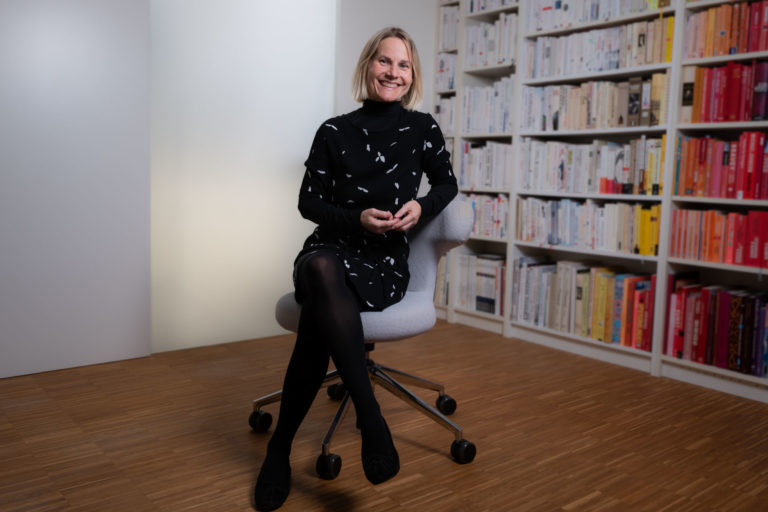
The great thing about knowledge is that it never leaves you.
Do you see any differences between young boys and girls in your program?
We see changes in the number of boys and girls that apply to the program every year, and I can’t always say why. We have different programs for different age groups and the highest percentage of girls in the program for younger participants aged 12 to 14 years. I notice that the kids start to be more influenced by parents and their surroundings after a certain age. When they are 12, they still have this very open mindset that everything is possible. Afterwards they tend to go more into the direction where society is expecting them to be or where their friends go.
We try to attract a diverse group of kids by emphasizing that our programs are not purely technology related, but have a lot of broader content including coding animations, drawing game characters, tell stories with the help of data or designing apps.
I also believe that girls want to have a sense of belonging and purpose. They thrive when they see that they can solve problems, by designing and creating something. And that technology can be a super cool and creative tool that they can use. So I am confident that the gender ratio will become more balanced in the future, but it is a slow process that needs a lot of specific effort from all of us.
I strongly believe that the whole tech sector also needs people coming from other sectors and with other non-technical backgrounds. There are many diverse roles in tech companies. As soon as this becomes more common knowledge, it will change how we relate to learning about tech.
And it is not enough to bring those diverse voices into the same room. Today, there is often an invisible gap and also sometimes a lack of respect for non-technical people in technology focused companies. This is not beneficial for our collaboration. We need to listen and to take each other seriously if we want to find solutions for interdisciplinary problems.
On the other hand, a technical understanding is an important building block for almost every job in every sector. I don’t think everybody has to become a technical expert, but it helps to have an idea, e.g. how AI works, what happens with data or how a computer communicates. We see today what happens if only one group of people builds consumer tech. Technological products and services need to be safe and sustainable and responsible when we scale them. Therefore, we need to be proactive and include a diverse group of people on all levels.
If there was one thing to remember, what made you achieve success?
It’s hard to boil it down to just one thing. I believe success is a combination of different factors. I was very fortunate to be surrounded by people that provided me with opportunities and believed in me at a young age already.
But at the end of the day it’s hard work. You have to have the courage to take on opportunities, e.g. to move to another region or work in a different area, to be able to grow. And then you need to put in the work – day after day over the years. Don’t be afraid to start at the ground level and learn all the things from the bottom up. Be determined, and improve constantly.
Success is also a very subjective feeling, and for me it is more about moments of success. When you sit in a concert hall with a thousand people being touched and uplifted by a performance that you have been responsible for in the creation. Or to have an impact on a young person that is not that privileged and see that a whole world is opening up to her/him, this is a feeling of success for me.
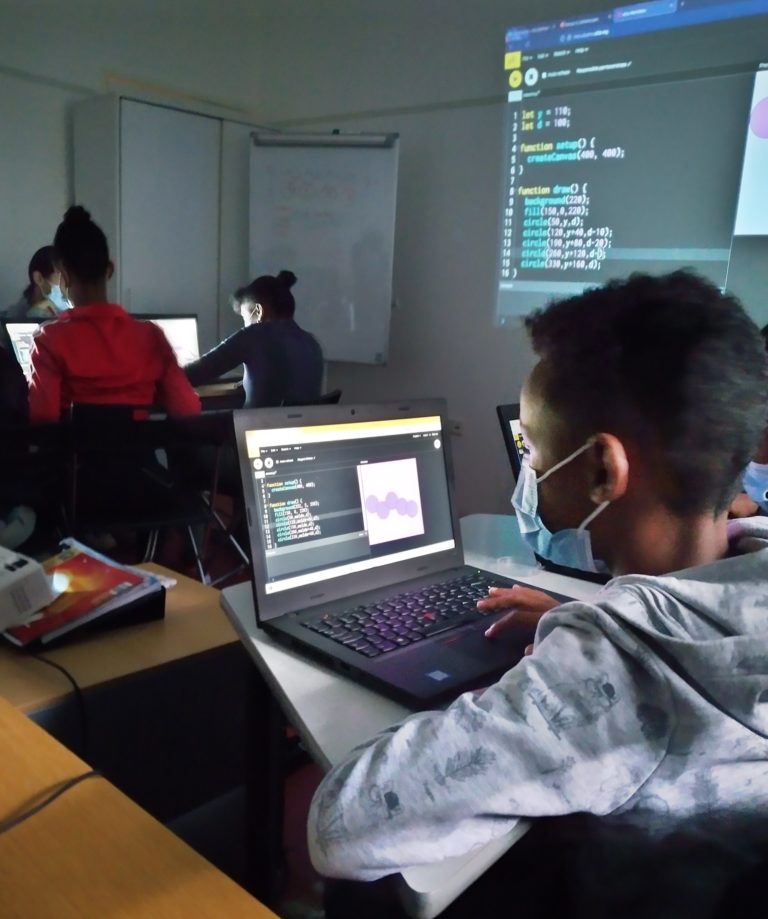
Artists, designers and creative minds play a crucial role in imagining how to explain technology to everybody in a positive and engaging way.
Is there anything you wish you had known earlier or would advise your younger self?
I would probably not have listened to advice as my younger self. I tended to completely absorb myself in my work at times, which was good in order to grow in many respects. But I also learned the hard way that you can’t disregard your boundaries, and that you need a good balance.
For me personally, it is less about a daily work-life balance, but to have a good balance of high and low work intensity periods. Phases where you give everything you have to your work, alternating with calmer, less externally demanding times. It is important to actively include pockets of stillness and imagination because wonderful things happen when your brain is empty. I learned that it is super important to recharge my batteries, and changing careers helped me to stay healthy in my mind. Inspiration, imagination, fantasy, creativity are all training for the head. Boredom can be pretty cool, too, it allows new ideas to grow.
I only now recognize these things more consciously. After some months or even years of super intense work, I try to disconnect for a while. In order to avoid being burned out, you will need to find your way of achieving balance.
If you weren’t doing what you do today, what would you be doing and why?
I could imagine myself in many very different professional scenarios. Versatility is a gift and at the same time a difficulty. When I had to decide what to study, I almost despaired of all the possibilities. I wanted to do so many things. I eventually decided for tourism and economics, but I could have taken many other paths.
Sometimes I have these moments where I think it would be so nice to have one area of expertise. I admire people that are experts and dedicate their whole life to one specific topic. But I had to accept that this is not me. I am thankful for my broad experience, which also allows me to see things differently. At the moment I have found my place at this beautiful intersection of art, technology and education. Intersections are where I feel most comfortable and good at, and I can imagine a lot more for the future.
What is your next challenge, and what are you hoping to achieve in the future?
I am still relatively new to technology and there is so much more to explore. We have started a really cool project exploring ethical questions around AI and what it means to be human in this specific age of time. I’m very interested in the whole area of creative technology, which is a growing and fascinating area.
I also see my future task in communicating digital topics and contexts to people without specific prior technical knowledge, and to facilitate conscious but positive discussions about it. I am a very visual person, and I see that visual explanations of technology work very well and become more tangible for non-technical people. Make them understand how tech works under the hood can be very empowering. In order to deal with the fear of technology, and dystopian future scenarios, it’s important to show how things work. As soon as people understand, they see possibilities rather than dangers.
I would love to see that we as a society develop a realistic yet optimistic view of what you can do with technology – and what not (yet). And we need to consciously determine how these new innovations should be developed and implemented responsibly and how it all impacts our lives.
Knowledge is so important. We need to make sure that all people can get a certain level of understanding. We need to work in innovative ways to achieve this, e.g. with storytelling and visual or even tangible explanations, to tear down these invisible barriers. Therefore, the role of artists, designers, and creative minds to imagine these futures is so crucial. There is still a lot to do, but we are all in the same boat. We have to make an effort to understand and listen to each other in order to open up the world of technology to everybody in a positive way.
We would like to thank Sara for her incredible work at the Luxembourg Tech School and for being a role model to young girls. Let’s collectively work on making the tech industry a place for everybody. Thank you, Sara, for being a woman who inspires us! 💛
Author: Lisa Stähli
Our Women Who Inspire Us series has already featured:
- Anastasia Hofmann, co-founder of food-tech start-up Kitro
- Valentina Ricupero, business consultant & coach
- Nadia Fischer, co-founder & CEO of Witty Works
- Vanessa Gentile, director alliance & channel Switzerland at Salesforce
- Priska Burkard, co-founder and CEO of Tech Face
- Isabelle Ohnemus, CEO & founder of EyeFitU
- Dr. Angelika Fuchs, Global Program Lead for Data Automation at Roche

